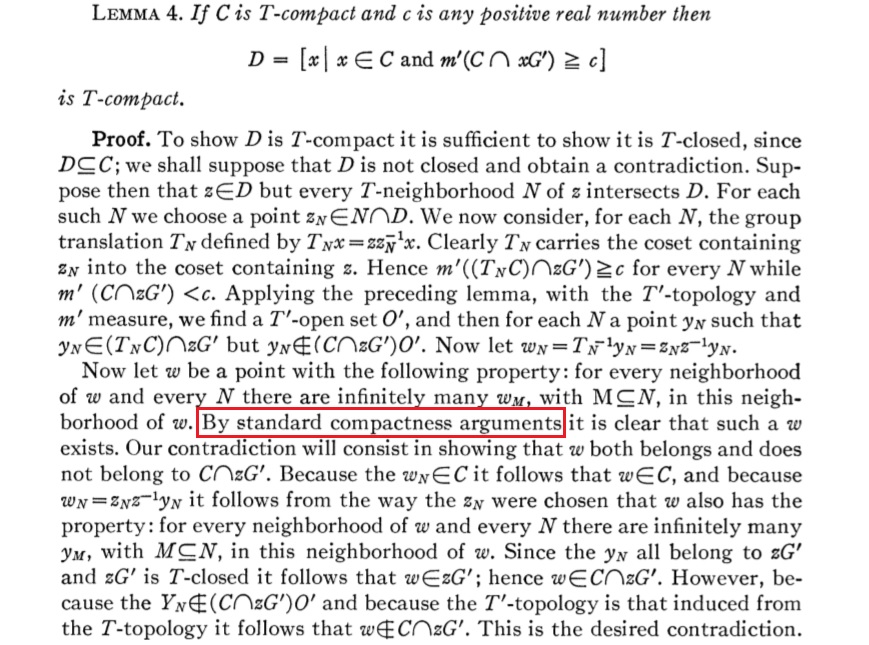In his blog, Jeff Shallit asks, what was the first occurrence of the exact phrase, "by the usual compactness arguments," in the mathematical literature?
He reports that the earliest appearance he has found was in a paper from 1953: it's on page 400 of John W. Green, Pacific Journal of Mathematics 3 (2) 393-402.
I found another example from that same year, on page 918 of F. A. Valentine, Minimal sets of visibility, Proc Amer Math Soc 4, 917-921.
So, is this year the 60th anniversary of the first appearance of that phrase?
If there was an earlier occurrence of the equivalent phrase in a language other than English, that, too, would be of interest.

